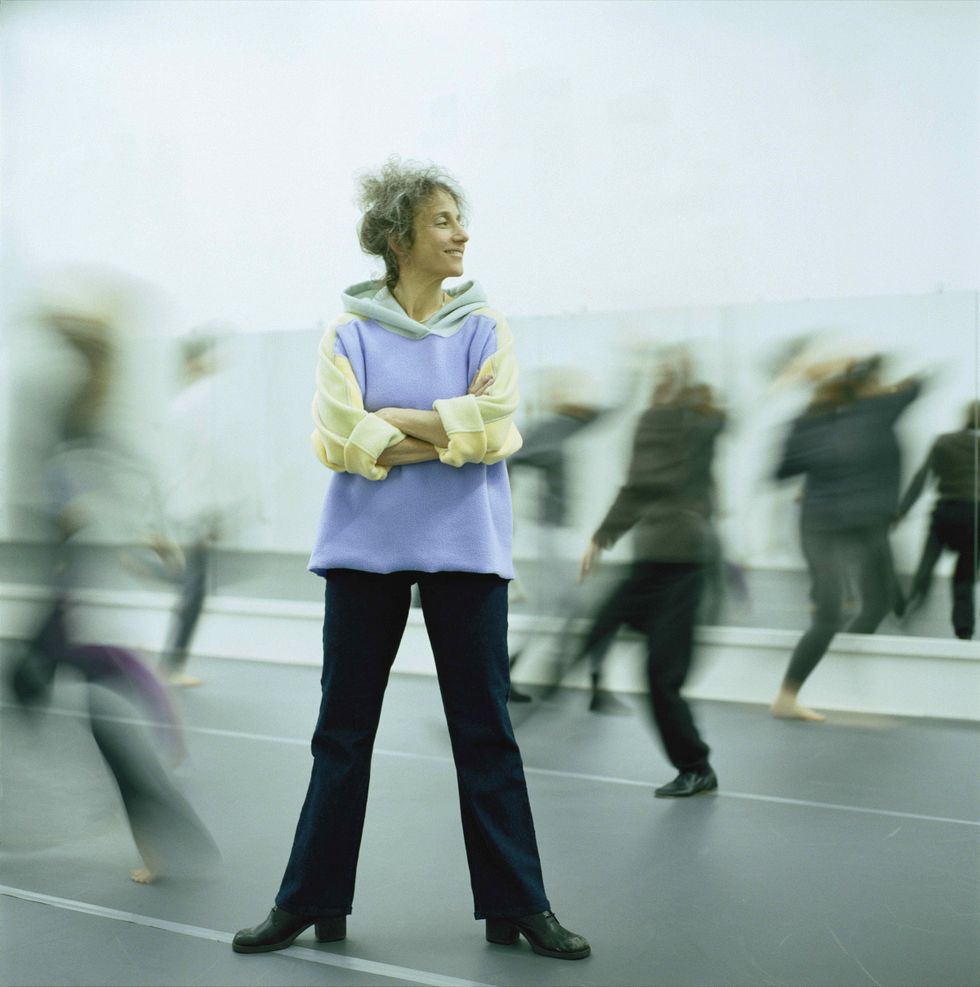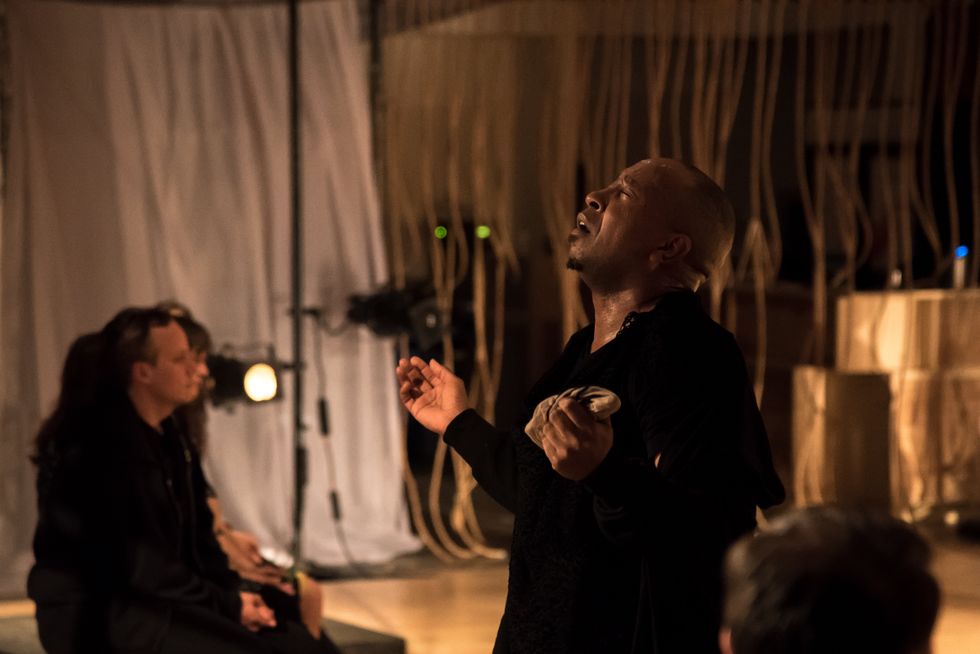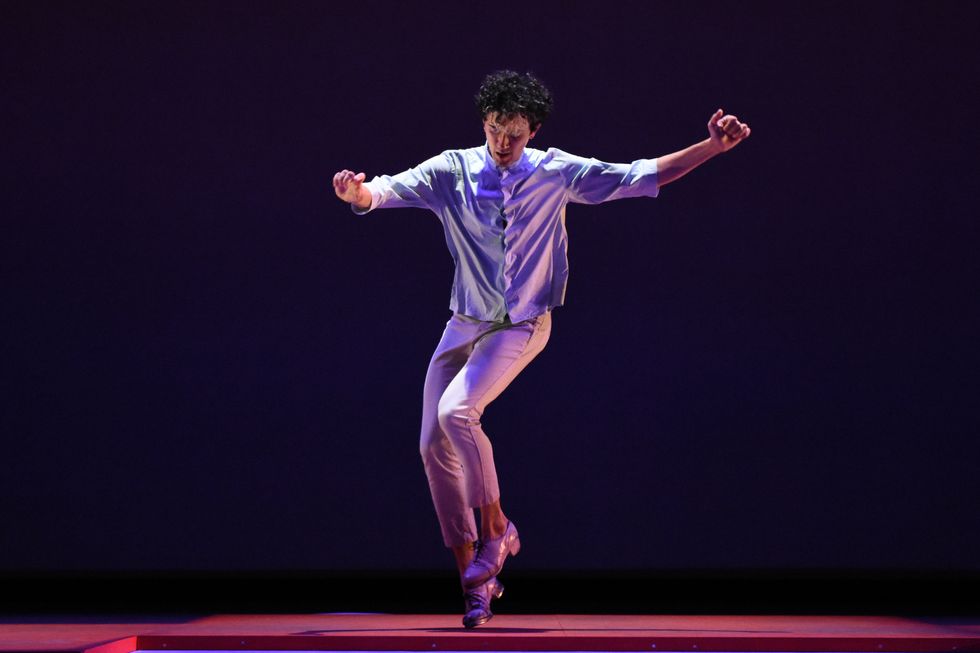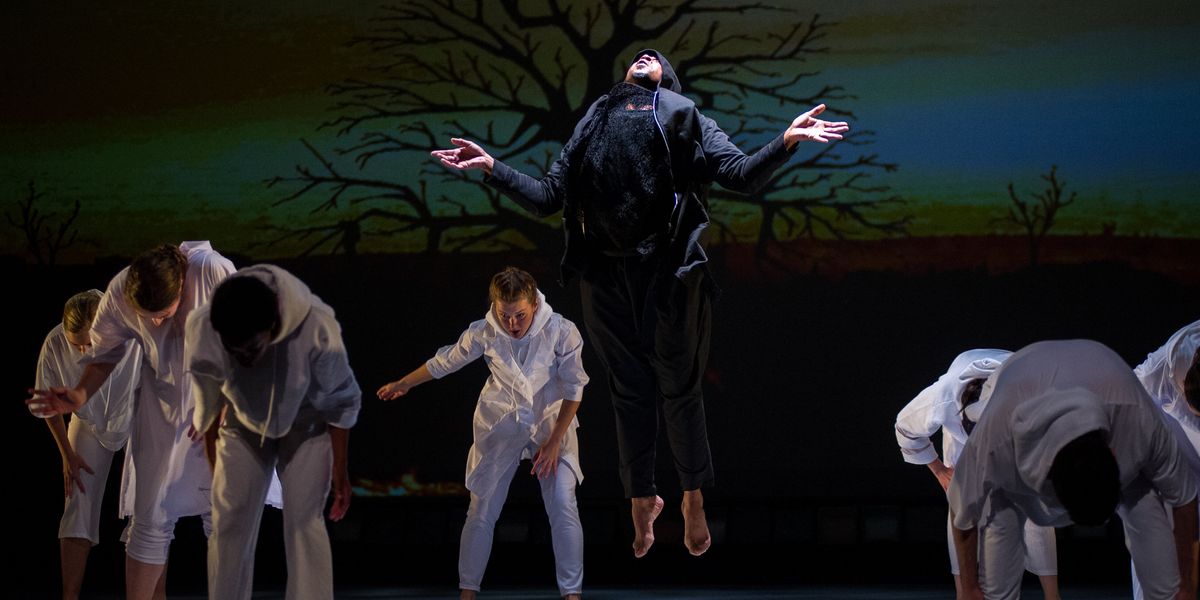Dealing With the Disappointment of Getting COVID-Canceled
It’s always been difficult for independent dance artists to gain traction, since they often exist outside of more secure infrastructures provided by full-time companies. They are used to rejection, injury and the usual career interrupters. But to be COVID-canceled is especially harsh, since it’s totally out of an artist’s control.
And it’s particularly disappointing when it comes at a time when the wind was blowing in your direction, with festival gigs, grants, awards and touring all aligned. DM spoke with Liz Lerman, Charles O. Anderson and Caleb Teicher, three independent artists at different stages of their careers whose whirlwind momentum came to a screeching halt last month. Each has handled the quiet, the time to reflect on the work not being performed and the uncertainty of what’s next with grace.
Liz Lerman: “I don’t see working at this scale again”

Liz Lerman began her Facebook post in early April, “I am saddened by the giant loss for dance at the closure of the summer festivals including ADF, Bates and Jacob’s Pillow,” holding back the news to deeper in the post that she was to premiere her Wicked Bodies at the Doris Duke Theatre in August as part of Jacob’s Pillow’s 2020 festival.
It would mark her first large-scale piece since Healing Wars in 2014, and her first return to the Pillow stage in two decades, after winning the Jacob’s Pillow Dance Award in 2017.
Wicked Bodies
has been brewing since 2015. She formally started working on the piece through residencies at the Pillow Lab in 2017, at Harvard University in 2018 and at Scripps College in 2019. This summer she planned to complete the design component at a 10-day Lumberyard residency.
Wicked Bodies
is now scheduled to premiere in January 2021 at Arizona State University, where Lerman is currently a professor at the Herberger Institute for Design and the Arts, and directs the Ensemble Lab, a cooperative of artists, researchers and civic leaders to experiment with methods for broad social impact.
“I was so looking forward to bringing this piece to life. It felt like an opening to me, as if people were thinking, ‘Oh, she’s still here,’ ” Lerman says with a quiet laugh. “I had a sense of joyfulness about being back at the Pillow. Our team was really excited to be going there.”
Lerman’s nimble career trajectory remains one of the most incredible dance stories of a resilient artist, who has reinvented herself several times over her multi-decade career. When it comes to creating dances, she’s a slow cook dancemaker who likes to take her time to let ideas steep.
For Wicked Bodies, Lerman had gathered a team of artists, like former Trisha Brown dancer Keith A. Thompson, and Martha Wittman, both of whom have been working with her for a long time. They were building toward this premiere, heading toward a finish line full steam ahead. All the while, Lerman has been fundraising night and day to keep this project afloat.
“My sense about this moment is how much of the system is breaking. I don’t see working at this scale again,” says Lerman. “That feels sad, and it’s not just me, but for the sector of independent artists, it will be difficult.”
Lerman is giving herself some emotional space. “Perhaps I am allowing myself to feel the loss. Perhaps, I am just seeing how much will change. I am finally admitting to missing the beauty of the Pillow and how long I have known it. I have so many memories.”
The first two acts of Wicked Bodies were solid and finished, with Act III in a more fluid state. It’s based on a story that’s told by the Kichwa and Achuar people in the Amazon basin about a previous extinction. Lerman adds, “We still have room to impact the story because of what is happening today. I can’t wait to do it.”
Charles O. Anderson: “These cancellations have knocked me off balance, but falling off balance is part of our lives as dancers”
 Photo by Jon Hass, Courtesy of dance theatre X
Photo by Jon Hass, Courtesy of dance theatre X
Choreographer Charles O. Anderson, 49, began a Facebook post with a wish for his students at University of Texas, Austin. “I want this moment to be an opportunity for my students to pause and think about how they might be better and healthier selves, citizens and leaders in the face of uncertainty, crisis, fear and change.”
Anderson was on a roll, both artistically, with his company dance theatre X, and academically, as head of the dance program and an associate professor of African Diaspora Dance Studies at The University of Texas at Austin.
His nine years at UT’s dance department has been transformative to the Texas dance landscape. He expanded the faculty to include Gesel Mason and visiting professors Rennie Harris, Leah Cox, Erica Gionfriddo and Raphael Xavier, and started a new MFA in Dance and Social Justice.
As the first Texas-based independent artist to receive a New England Foundation for The Arts’ National Dance Production Grant in 2018 for (Re)current Unrest, he was ready to get his work seen outside of Texas.
In addition to the premiere of (Re)current Unrest in September at 651 Arts, followed by a national tour of the piece, his schedule included a premiere at the American Dance Festival and a Ririe Woodbury Commission.
Anderson was finally breaking through. “It felt like my career was in motion for a second,” he quips. “I have always been told to keep a stiff upper lip, but this one hurt.” As for the (Re)current Unrest premiere and the tour, uncertainty prevails. “I don’t know what state those organizations will be in during the 20/21 season. If they will still exist.”
Anderson sees himself as blessed to have a job and a place to continue to develop his work. “It’s time to focus on the big picture and lean into my practice, shift my attitude. These cancellations and setbacks have knocked me off balance, but falling off balance is part of our lives as dancers. I have my mind, my body, so let’s build for this moment.”
Right now, he’s considering returning to an earlier work, Evidences of Things Unsaid/World Headquarters, inspired by late science fiction writer Octavia Butler’s prophetic dystopian novels, Parable of the Sower and Parable of the Talents. “I started to create this piece back in 2010 to address the aftermath of a collapse,” he says. “Given our current circumstances, it feels like it’s time to return to it.”
Caleb Teicher: “I laid off everyone, including myself”
 Grace Kathryn Landefeld, Courtesy Teicher
Grace Kathryn Landefeld, Courtesy Teicher
Caleb Teicher began his e-blast, “Dear Friends, This newsletter confirms what you knew to be true: Everything in our near future is canceled.” If you scrolled through the email you could see a list of his many canceled performances, at such venues as the Paris Jazz Roots, Spoleto Festival and Princeton University.
“I’m used to being underemployed. That’s familiar. But being unemployed, having no work, that’s a new experience,” says Teicher, 26.
Teicher is fully aware of his blessed career and non-stop momentum. He had lined up 24 weeks of touring in 2020, including 18 weeks with his tap and swing dance troupe, Caleb Teicher & Company. He holds out hope that some shows might still happen in the fall. “It was heartbreaking to email the dancers,” admits Teicher. “I laid off everyone, including myself.”
He’s not jumping on the digital content bandwagon just yet. “Well, I live in a fourth floor apartment so I can’t really tap dance in my kitchen,” he says.
Nor is he feeling any urgency to quickly reformat his work for the internet. “I need time to think about what this means for my artistic practice,” he says. “Social dance is interpersonal. Dancing live is an essential part of the experience. You don’t get it online.”
He also wants to sit tight, ride his bike and be quiet. “I want to take a moment to see what’s happening around me. This is such a bigger event; our lives might need an overhaul. I can’t imagine things resuming as normal like it never happened. I won’t be the same person,” he says. “Times like this make us aware of injustice. Why is our economy so unstable that it falls apart in a few weeks?”
As for the uncertainty of the future, Teicher is ready to live with that too. “Gigs are gigs. They will be rescheduled, hopefully.”
Teicher plans to re-enter in a relevant way. “I imagine swing dance will be a lovely way to return to the world, with its sense of community and physical contact. We will finally be able to be together again.”




